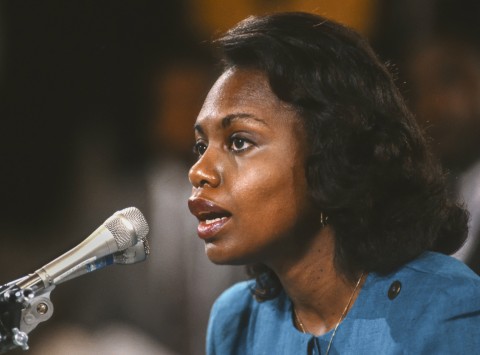Racism, sexual predators, and my experiences with both
I’ve re-watched the footage of Anita Hill.

Ever since Christine Blasey Ford’s account of an assault by Brett Kavanaugh was published in the Washington Post on September 16, the news has been a barrage of #MeToo stories, many of them buried for decades. As a survivor myself, I feel both exhausted and exhilarated. Exhausted to be exposed to so much deep pain. Exhilarated at the prospect of justice being served to a prospective Justice.
I’m a Presbyterian pastor living in the Washington, D.C., area. I have all the credentials of a bleeding-heart liberal. Just yesterday I listened to public radio as I drove my fuel-efficient car to attend a workshop called “Whiteness and Privilege.” Our presbytery meeting began with a prayer of confession: we confess that systemic racism exists, and that this systemic racism is the operative ideology of white supremacy. The preacher was Catherine Meeks, an African American woman who runs the Absalom Jones Center for Racial Healing. A black gospel choir led us in singing. Sing a song full of the faith that the dark past has taught us, Sing a song full of the hope that the present has brought us.
I understand that I am afflicted by racism, as we all are. I sincerely want to disrupt the systemic racism that is part of our culture. But other thoughts tumble through my head as well. Sexual assault, which flows from systemic misogyny, is a sin that’s endemic to our culture, too—and for me, the two subjects are uncomfortably linked.




